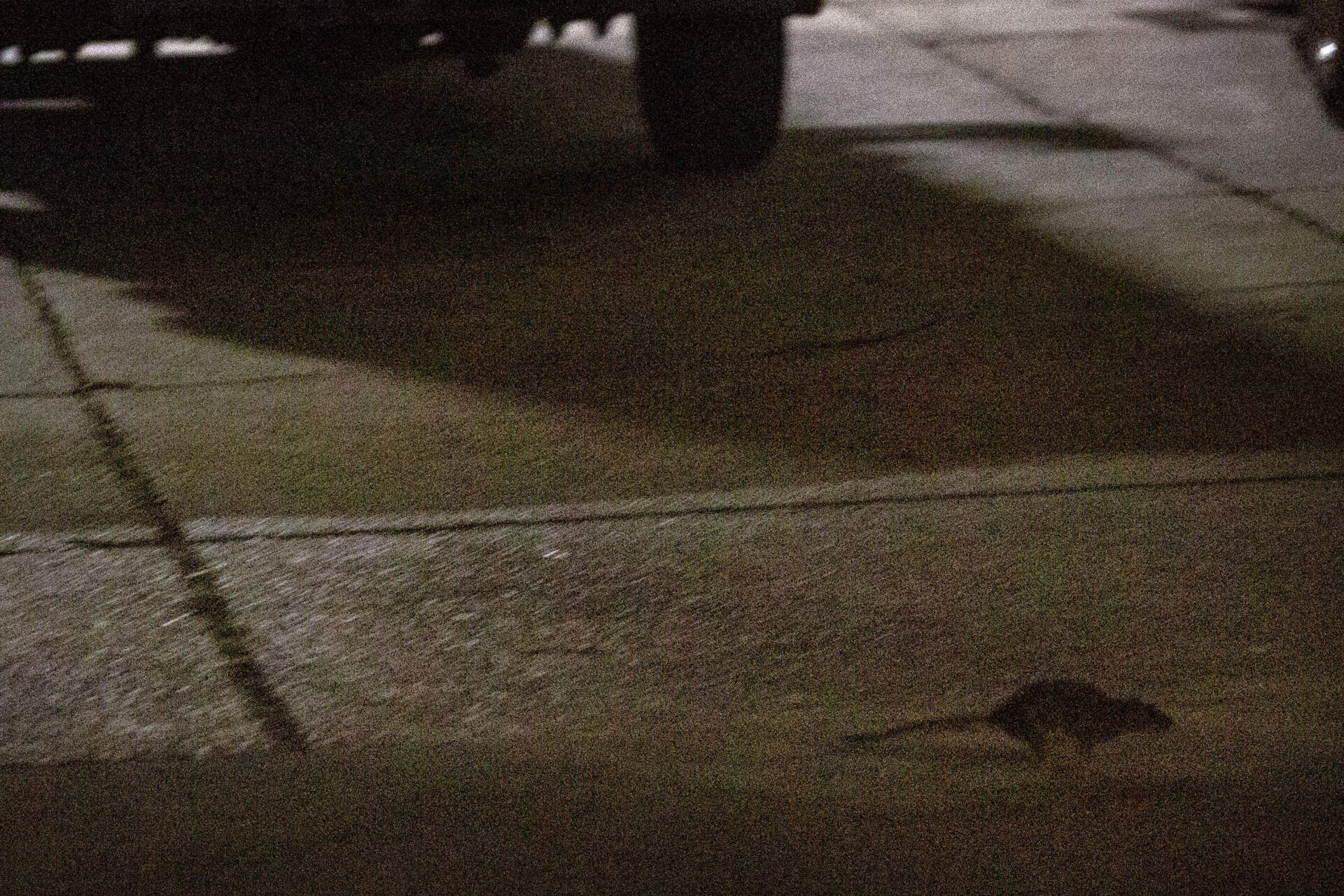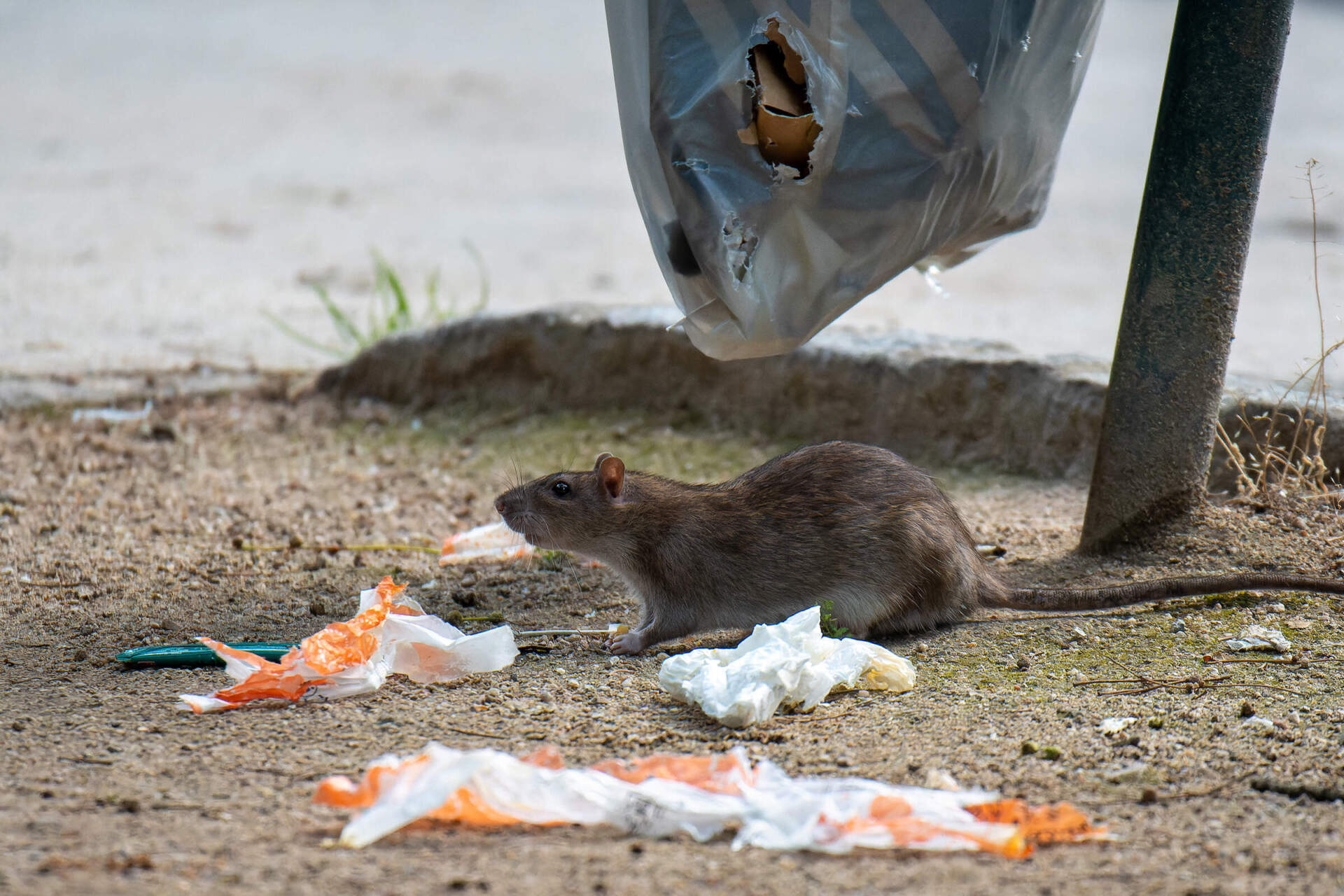Advertisement
Field Guide to Boston
Don't let the rats run Boston: Here's how to keep your home and car safe
Resume
Beware the rats of Boston. They scamper into your life when they’re least welcome.
Candace Smith, of Allston, was driving 70 mph on the highway when her power steering died. She popped the hood to find the critters had chewed through her car's alternator wires.
Ricky Meinke told WBUR how a rat once died inside his apartment wall, and that his girlfriend found a dead rat in her oven. Rats cut the coolant sensor wires to Jessica Rivilis' SUV during her law school finals. Like Smith, they also live in Allston, nicknamed "Rat City" as a playful riff off its rock music scene and many rodents. (Rock City, Rat City, get it?)
Boston’s dense and lively urban neighborhoods are ideal environments for rats.
Complaints handled by the city of Boston’s top rodent control office soared after the pandemic’s onset, peaking at nearly 5,000 in 2022. Last year’s numbers remained near those levels, suggesting the city’s rat boom may persist.
As climate change brings warmer weather to the area, experts say there’s more opportunity to breed.
Boston’s most common type is the Norway rat, or rattus norvegicus, a native of Asia that lives in urban areas around the world. They can transmit diseases to humans, contaminate food and trigger asthma symptoms. Sanitation workers, unhoused residents living in unsanitary encampments and others who come into close contact with rodents have the highest risk of rat-transmitted disease. However, the risks rats pose to humans are rarely dire.
But they are a nuisance to many — causing property damage, contaminating food they find in your house or leaving droppings and urine on your floor. Sometimes, they snuggle up against the warm engines of recently parked cars and chew on the wires, causing thousands of dollars in damage.
Fortunately, there are ways to protect yourself and your neighbors — short of bringing back "Rat Day," a city-wide event in the early 1900s during which residents caught and exterminated rodents for prizes.
The first thing to remember: Where there’s humans, there’s trash. Where there’s trash, there’s rats. And for a rat, an open dumpster packed with restaurant or household refuse is no dumpster at all. It’s a buffet, said Marieke Rosenbaum, an assistant professor at Tufts University’s Cummings School of Veterinary Medicine.
“It all comes down to the trash. It's their food. So, look for the trash piles and you'll find the rats,” Rosenbaum said.

Damage from rats in homes or cars can cost thousands of dollars to fix — but advice is free. So here are some more recommendations from John Ulrich, an assistant commissioner with Boston’s Inspectional Services Department, and Jim Fredericks, a spokesman with the National Pest Management Association.
Inspect for rats in your new home
- Check your prospective apartment building for good sanitation. Are the dumpsters or trash bins open or overflowing? Are they in good condition?
- Be a good neighbor: Place your trash inside the barrel or dumpster, not beside it. Close the lid tight.
- Look for the telltale signs of rat burrows in the landscaping — mounds of dirt with holes two- to four-inches wide.
- Call out neighborhood rats: Do you know of a dumpster with a rat problem? A nuisance burrow on a vacant lot? If you see one rat, there’s probably more. Report to the city’s non-emergency help line 311 as soon as you can. A licensed city inspector will visit.
Protect your car from rodents
- Never rent a parking space next to a dumpster, especially in winter. A warm engine compartment is a cozy haven for a rat. (Candace Smith learned this the hard way, and now parks her car on the street, far away from the dumpsters in her apartment's parking lot.)
- Keep your car clean. Mice love to nest in fast food wrappers and tissue paper.
- Check under the hood regularly. Look for droppings as well as chewed up insulation, upholstery and engine wiring.
- Consider over-the-counter rat repellents, but remember they are no substitute for keeping your car clean and away from trash. Some car owners swear by spraying peppermint oil on the engine or placing bars of Irish Spring soap in the engine compartment, but they don’t always work.
- If your car is overrun by rats, ask your mechanic to clean out the rat urine and feces. Breathing in the aerosolized urine particles is unhealthy, though reports of disease are rare.
- Consider buying comprehensive auto insurance, which covers damage that’s not caused by a wreck – such as a tree falling on your car, or rats eating your engine wires.
This segment aired on March 28, 2024.
